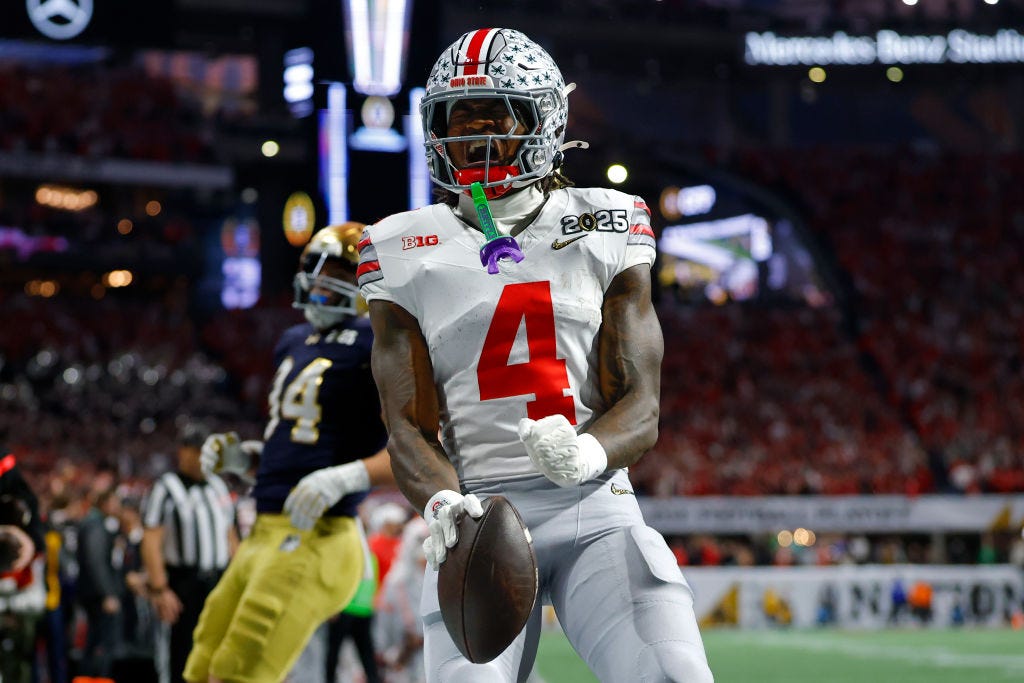Underclassmen Exemptions Are Coming; Here’s How the NFL Can Get It Right
The NFL doesn't allow freshman or sophomores in college to declare for the NFL Draft. Can a player like Jeremiah Smith challenge this system? Does it need exceptions?
Cory Kinnan from the Daft on Draft Newsletter, a publication devoted to high-quality work covering the NFL Draft, wrote a piece for us on early entrance into the NFL Draft. For more of his content, check out his Substack.
Fresh off a Heisman Trophy-winning season in 1988, Oklahoma State running back Barry Sanders changed the fate of the NFL Draft forever. Whether he recognized it at the time or not.
At the time, the NFL had a rule that only players who had finished all four years of school or had graduated early were eligible to enter the NFL Draft. However, entering Sanders’ senior season at Oklahoma State, the football program was placed on probation due to recruiting violations. Sanders requested a special exemption to enter the NFL Draft, and as a result, was granted it.
That opened a floodgate that only took one year for NCAA underclassmen to fully realize.
In 1990, a dozen talented juniors rebelled, deciding they wouldn’t play college football for a fourth year, and there was nothing the NCAA could do to stop them. Some of these players included Florida running back Emmitt Smith, Alabama linebacker Keith McCants, Tennessee running back Reggie Cobb and Heisman Trophy-winning quarterback Andre Ware from the University of Houston.
This forced the hand of NFL Commissioner Paul Tagliabue, who altered the NFL’s policy to allow for juniors to enter the NFL Draft permanently. Over the last 35 years, the number of juniors entering the NFL Draft has skyrocketed.
Until the NCAA allowed for players to receive payment for their name, image and likeness (NIL). Since the 2022 season, when players started receiving compensation at the college level, the number of underclassmen has steadily decreased.
NIL has changed the NFL Draft since underclassmen are no longer risking development to chase life-changing money. They’re now receiving more or equal amounts of money than they would see on Day 3 and undrafted free agent contracts.
This has shifted the mindset of every non-first-round player with remaining eligibility at the college level. It will also lead to another 1990-like facelift of the NFL Draft soon.
NIL’s Role in Changing the NFL Draft
While the NFL isn’t likely overly concerned about the talent pool year in and year out, the NFL Draft’s player pool is getting older because of NIL. Players with remaining eligibility are opting for the sure thing of upfront money for another year of college football versus the risk of sliding in the draft.





